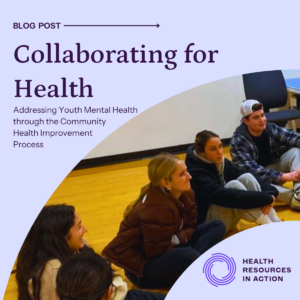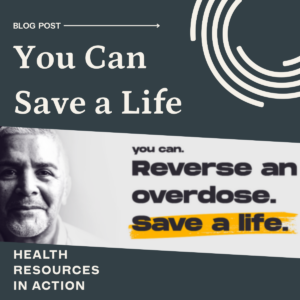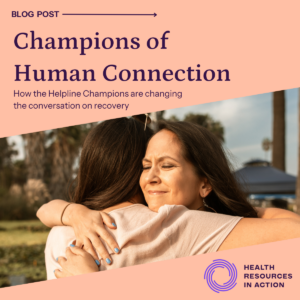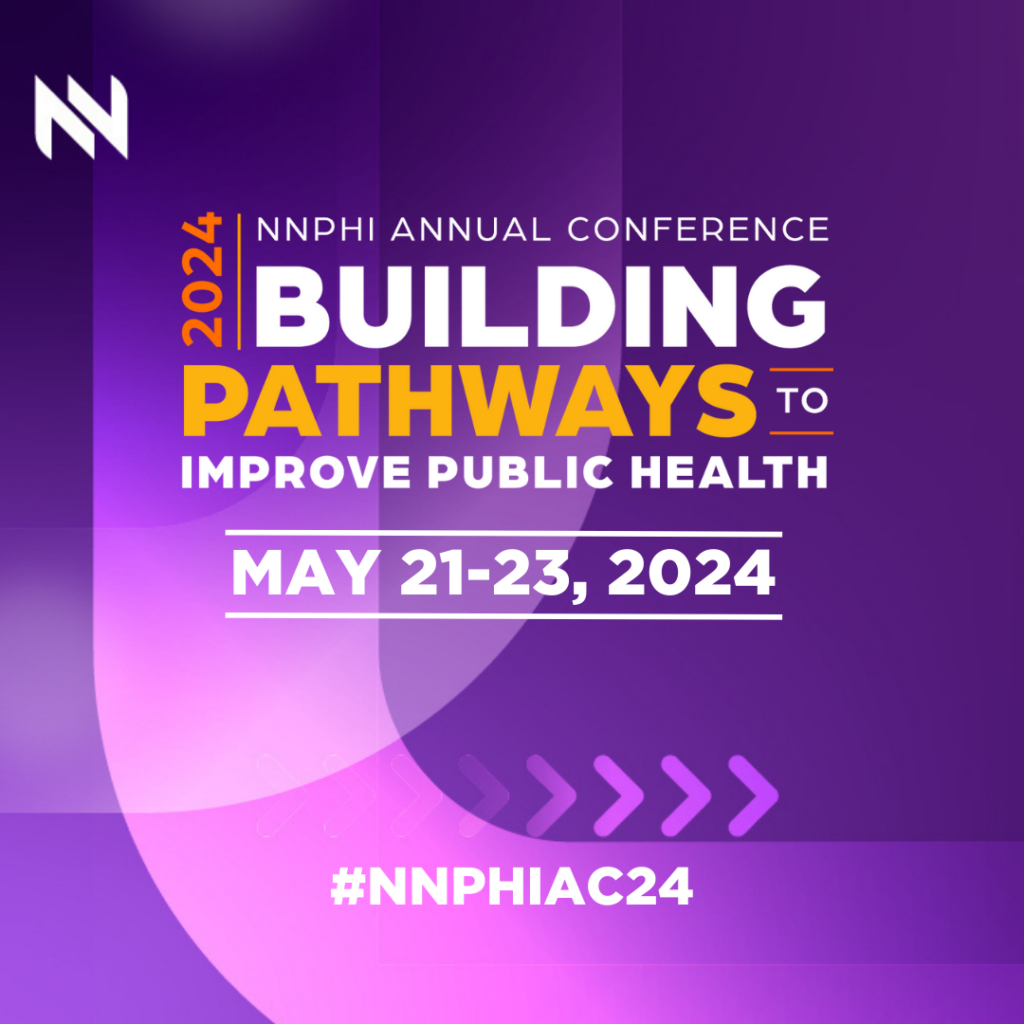Health Resources in Action (HRiA) looks forward to participating in the National Network of Public Health Institutes (NNPHI)’s annual meeting in New Orleans, Louisiana on May 21-23, 2024! This year, we’re sending 16 staff members to learn, connect, and share lessons learned from our work over the past year. Below, you’ll find a list of our team members attending the conference, information on our posters and presentations, and curated content and resources to learn a bit more about us. We hope to see you there!
Posters
Centering BIPOC voices in substance use grant making: Redefining Community Wellness Grants Program
Tamaki West
May 21st, 5 – 6:30 PM CT
Black, Indigenous, and People of Color (BIPOC) have inadequate access to culturally responsive programming that addresses substance use, yet their voices are often not reflected in the solutions. Furthermore, fewer BIPOC-led organizations that primarily serve BIPOC communities have historically been awarded MA Department of Public Health’s (MADPH) Bureau of Substance Addiction Services (BSAS) grants to address substance use disorders (SUD) despite being disproportionately impacted by substance use. To respond to these challenges, MADPH’s BSAS partnered with Health Resources in Action, a Boston-based public health institute, to launch an initiative, “Redefining Community Wellness Grants Program” that intentionally centers BIPOC voices throughout the grant making and capacity building process. Using community engagement learnings, emphasis in the session will be on how Public Health Institutes can intentionally partner with communities and funders to design grant making initiatives.
Learning from a Program’s Creative Approach to Stakeholder Engagement for a Strategic Plan Update
Eliza Campbell
May 21st, 5 – 6:30 PM CT
The success of a strategic planning process often hinges on the quality of stakeholder engagement throughout the process, yet many public health entities struggle to gather and incorporate meaningful input when time and resources are finite. Additionally, addressing health equity requires purposeful community engagement to ensure plans are relevant to the communities they are intended to serve. This session will share learnings from the process a state health department program undertook to refresh an existing strategic plan. Despite a limited budget and timeline, they were able to use interactive methods to engage a wide array of stakeholders, gathering their input on mission and vision statements, plan components, and the identification of resources and partnerships.
Panel
Navigating Tomorrow: Leveraging Public Health Institutes to Address Climate & Crisis Preparedness
Francesca Toledo-Alexander (NNPHI), Madelyn Gustafson (NNPHI), Geraldine Medina (HRiA), John Oeffinger (THI), Karam Ahmad (CHI), Leslie Ortiz Montex (PRPHT)
May 22nd, 2:00 – 3:15 PM CT
This panel explores how Public Health Institutes and Training Centers prioritize climate issues, showcasing NNPHI’s Environmental Health & Climate Workgroup and the NNPHI Public Health AmeriCorps program. The session features workgroup members and Public Health AmeriCorps Host Sites sharing diverse perspectives and experiences in climate initiatives. Discover the dynamic potential of collaboration in public health as we delve into innovative partnerships across the network. Discussions focus on challenges, success stories, and lessons learned, emphasizing collaboration and knowledge exchange. Attendees gain actionable insights and a roadmap for adapting these initiatives locally. The session inspires a collective response to climate challenges, fostering a deeper understanding and empowering participants to drive positive change in their communities.
Presentations
Convening Violence Prevention Ecosystems to Advance Public Health Linkages: Insights from 4 Cities
Natalie Johnson, Anna Thordarson, Kelsey McManus, Lina Jew, Edward Alexander
May 22nd, 3:30 – 4:00 PM CT
This session will describe Health Resources in Action’s (HRiA), a Boston-based public health nonprofit working in service of healthier and more equitable communities, process for inventorying, convening, and sustaining connections with the violence prevention and intervention ecosystem in four cities: Atlanta, Georgia; Boston, Massachusetts; Milwaukee, Wisconsin; and Oakland, California. The purpose of the convenings was to provide a container for relationship-building across organizations, initiatives, and city government, with the objective of better understanding and integrating the ecosystem as a whole. During this session, the team will present comparative findings from each city’s landscape assessment, including violence data and political context and climate, co-concurrent factors that influence violence, partnerships with local public health, community voice, and existing intervention and prevention strategies.
Content and Resources
Recent blog posts
Cities and towns approach HRiA’s Community Health Improvement (CHI) Team with specific community needs in mind. HRiA’s approach to assessment and planning processes meets the needs of our clients while also centering the voices of those most impacted by an issue. This blog post takes a closer look at the approaches we used in our CHI work with the towns featured in our latest case study.

To reverse rising rates of fatal overdose, we must build broad community capacity in overdose prevention and rescue. These skills are simple to learn and easy to perform—anyone can do them. This is the foundation of HRiA’s You Can initiative.

Champions of Human Connection: How the Helpline Champions are changing the conversation on recovery
Connection to others is a vital component of recovery and harm reduction. In this post, we explore the concept of connection through the lens of HRiA’s Helpline Champions Program.

Our Team


















